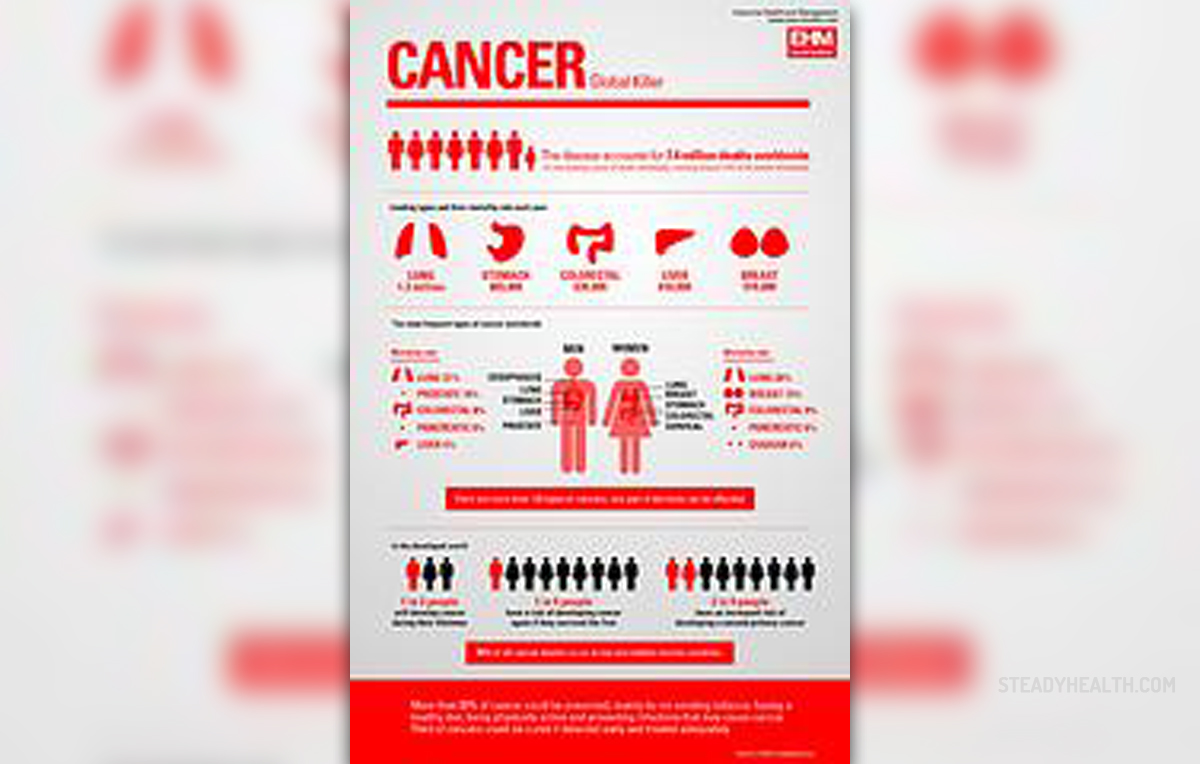
Cancer of each and every organ in the body is considered a serious disease which requires aggressive treatment and proper care and support. Esophageal cancer affects the long and hollow digestive organ in charge with transfer of food from the mouth to the stomach. The cancer usually stems from epithelial cells of the esophagus although it may also start in other cells of the organ.
It is estimated that esophageal cancer mainly starts in the lower portion of the organ and it is more reported in men. This is because men are more prone to cigarette smoking and heavy drinking, two major contributors to esophageal cancer.
This type of cancer is not so frequent in the United States. On the other hand, it is prevalent in certain areas in Asia and Africa.
What are Risk Factors for Esophageal Cancer?
Any condition, bad habit and similar associated with chronic irritation of the esophagus and subsequent inflammation of the inner lining may eventually result in esophageal cancer. So, apart from cigarette smoking and alcohol consumption, which have already been mentioned, there are several more factors closely connected to the onset of esophageal cancer. These include gastroesophageal reflux disease, bile reflux, achalasia, proneness to drinking very hot liquids, insufficient consumption of fresh fruits and vegetables, consumption of food preserved in lye such as lutefisk, obesity, Barrett's esophagus (precancerous lesion of the organ), previous radiation therapy of the chest or the upper abdomen.
Esophageal Cancer Coping and Support
Treatment for esophageal cancer can be quite exhausting and devastating. The very thought of being ill makes many people depressed, anxious and sometimes even suicidal. However, patients must stay strong and fight back with plenty of support from their loved ones.
It is essential to find out as much as possible about esophageal cancer and available treatment options. This way patients may opt for more modern treatments (if they are eligible for these) and may even include some of alternative treatments. The decision is made after consulting the doctor who will actually recommend the most convenient treatment and say whether certain alternative treatments can be combined with official ones.
Patients must stay in contact with their friends and family. The support from these people is crucial in overcoming all obstacles during treatment.
Many patients have huge desire to share their inner thoughts and fears. A good listener no matter whether he/she is a family member, friend or even psychotherapist will be sufficient enough for this purpose.
Finally, it may be good to be surrounded with people facing the same problem. So consider joining support groups and meet other people suffering from esophageal cancer.

















Your thoughts on this
Loading...